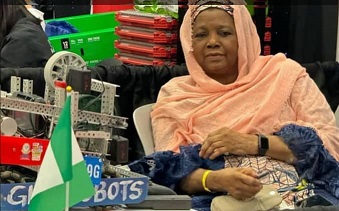Samira Jibir, the National President of National Association of Proprietors of Private Schools, (NAPPS), has urged members of the association to embrace use of technology in management of the school and economic development.
This, she said, will enhance the creation of employment, creativity and critical appearance among Nigerian children.
During her speech at the celebration of the Children’s Day celebration in Abuja, Jibir noted the need to place strong emphasis on the incorporation of every child into education, regardless of the diversities they might have.
She spoke of the importance of quality education, emphasizing that every child be provided opportunities for developing themselves in every aspect needed for protection, safety, mental health, and emotional stability.
Building upon the need for embracing technological advancement in child development, Jibir called on society to prepare children to use technology devices, to be technologically smart and to have 21st-century skills.
“In an increasingly digital world, we must equip our children with digital literacy or 21st century skills, enabling them to harness the power of technology for learning, innovation, and empowerment while safeguarding them from its potential risks and pitfalls.” she stated.
She also called on the government to provide incentives such as; tax credits for funding the private school sector, reduction in multiple taxation and better teacher training for private schools, with specific reference to schools for less privileged kids.
Furthermore, she highlighted the active role of parents in school activities, curricular, and opened communication with teachers.
“Empowerment encompasses more than just academic excellence. It encompasses fostering a nurturing environment that respects and nurtures the uniqueness of each child, regardless of their background, abilities, or circumstances for the economic growth in the country.” Jibir added.
On the strive to empower the Nigerian child for the future, she advocated for the recognition of the pivotal role of technology in shaping the lives of the children and prospects in the future workspace.
She concluded by urging Nigerians to recommit themselves to the noble cause of empowering the Nigerian child for the future. This can be done by enabling them to develop critical thinking, problem-solving, higher-order thinking, effective communication, collaboration and entrepreneurial abilities that will allow them to create their own opportunities and impact their world positively.


